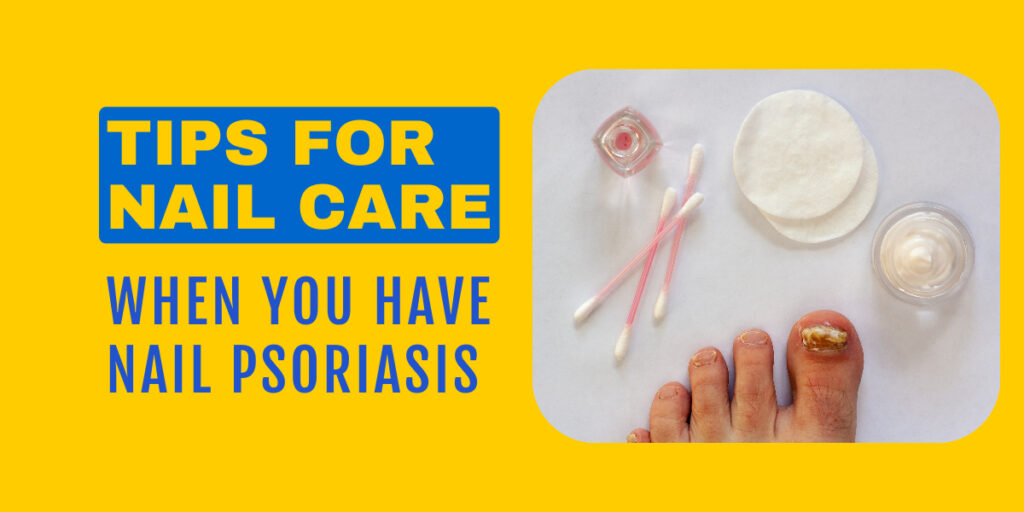Nail psoriasis – Tips for nail care
When you have nail psoriasis, proper nail care can help manage the condition and improve the appearance and health of your nails. Here are some tips for nail care when you have nail psoriasis:
- Maintain good nail hygiene: Keep your nails clean and dry to prevent fungal or bacterial infections that can worsen nail psoriasis. Avoid harsh chemicals and detergents that can irritate the nails.
- Avoid trauma to the nails: Protect your nails from injury or trauma. Wear gloves while doing household chores or activities that may expose your nails to damage. Be cautious while cutting or filing your nails to avoid further irritation.
- Moisturize regularly: Apply a moisturizer or emollient to your nails and cuticles to keep them hydrated. This can help reduce nail brittleness and dryness associated with psoriasis.
- Trim nails carefully: Use sharp, clean nail clippers to trim your nails straight across. Avoid cutting the nails too short or cutting into the corners, as this can increase the risk of nail damage or ingrown nails.
- Use nail-friendly cosmetics: Choose nail polishes, removers, and other nail products that are gentle and free of harsh chemicals. Some brands offer nail products specifically designed for individuals with nail psoriasis.
- Consider topical treatments: Your dermatologist may prescribe topical medications such as corticosteroids, vitamin D analogues (calcipotriol or calcitriol), or retinoids to apply directly to the affected nails. Follow the prescribed instructions carefully.
- Explore systemic treatments: In severe cases, oral medications or injectable biologic drugs may be recommended to manage nail psoriasis. These treatments require a prescription and should be discussed with a dermatologist.
- Massage your nails and cuticles: Gently massaging your nails and cuticles can help improve blood circulation and promote nail health. Use a moisturizer or cuticle oil during the massage to nourish the nails and surrounding skin.
- Protect your nails: Wear gloves while performing activities that expose your nails to water, chemicals, or trauma. This can help minimize damage and prevent exacerbation of nail psoriasis.
- Manage stress: Stress can worsen psoriasis symptoms, including nail psoriasis. Find healthy ways to manage stress, such as practicing relaxation techniques, exercising, or engaging in hobbies that help you unwind.
- Regularly follow up with your dermatologist: It’s important to keep regular appointments with your dermatologist to monitor the progress of your nail psoriasis and adjust the treatment plan if needed. They can provide guidance and support throughout your treatment journey.
Remember, these tips are meant to complement medical treatment, and it’s crucial to consult a healthcare professional for personalized advice and guidance tailored to your specific condition.
